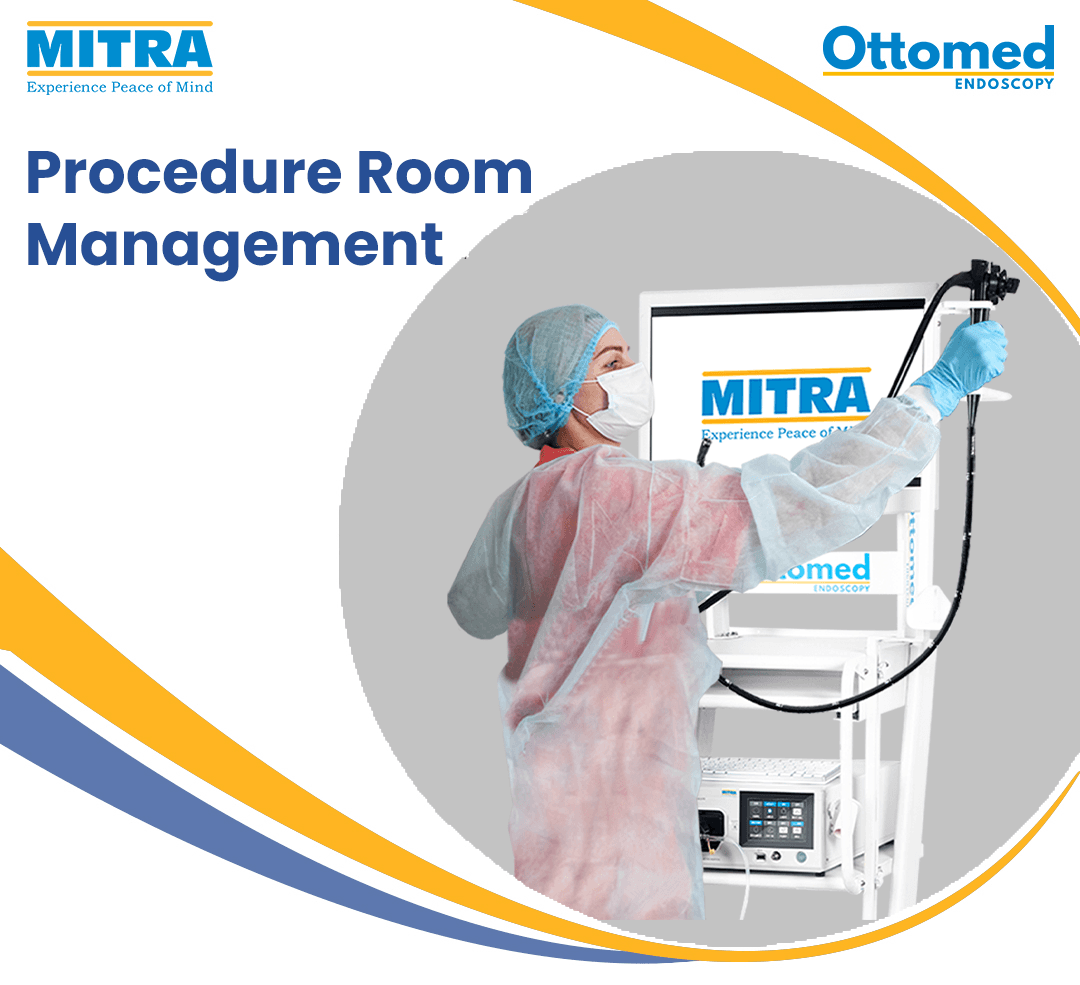Connect with Us
Looking for expert guidance on endoscopic solutions?
Reach out to us and explore imaging innovations that transform medical diagnostics.
Looking for expert guidance on endoscopic solutions?
Reach out to us and explore imaging innovations that transform medical diagnostics.
By MITRA GROUP |

Endoscopy is classified as an Aerosol Generating Procedure (AGP). It is very important to maintain high standards of decontamination and disinfection in the procedure room to reduce infection transmission risk to the Endoscopist, Staff, and Patients.
The Endoscopy procedure room is like a miniature OT requiring adequate and designated space for all necessary equipment, supplies, and services.
All personal protection gear like PPE Kits, Masks, Gloves, etc. should be stored outside the procedure room to avoid contamination of fresh unused gear. Used items can be disposed of in a dedicated hamper inside the procedure room after a procedure is completed.
The endoscopy procedure room should be clutter-free and facilitate easy movement of the Endoscopist and nursing staff so that procedures can be carried out smoothly.
The endoscope reprocessing area should ideally be just outside the procedure room with enough space for the Endoscope Reprocessors, sink, and space for initial rinsing of soiled equipment. After a procedure, the endoscope should be transported to the reprocessing room in a special airtight container. Always wear a fresh face mask and full face shield while transporting and reprocessing the endoscope.
Adequate levels of disinfectant, detergent, and alcohol solutions should be maintained in the reprocessor.
Maintain a ‘dirty-to-clean’ flow of endoscopes and equipment in the reprocessing and equipment areas to avoid cross-contamination between soiled and newly cleaned instruments. Adequate counter space on both sides of cleaning areas must be available to accommodate one or more instruments. Counter space with compressed air for drying should be available nearby.
Manual Endoscope reprocessing has always been a tough & challenging job for endoscopists & technicians. The Covid-19 pandemic has made it even more challenging.
After an endoscopy, the procedure room, endoscope, and its accessories require careful and proper disinfection. Missing out even a single step may lead to a high risk of cross-contamination to the Doctor, Patients, and the healthcare staff. In this pandemic, proper reprocessing of endoscopes & related accessories is extremely crucial to maintain the safety of the Doctor, Patients, and the healthcare staff.
The best solution to ensure proper cleaning and disinfection of the endoscope is to use an endoscope reprocessing machine like Ottomed EndoWasher, a fully automatic twin endoscope reprocessing machine for washing, disinfecting & drying endoscopes with standardised processes. This greatly reduces the risk of cross-contamination between Doctors, Patients, and Healthcare staff and makes Endoscopy safer for everyone involved.
By Ottomed |
By MITRA GROUP |
By MITRA GROUP |
By MITRA GROUP |